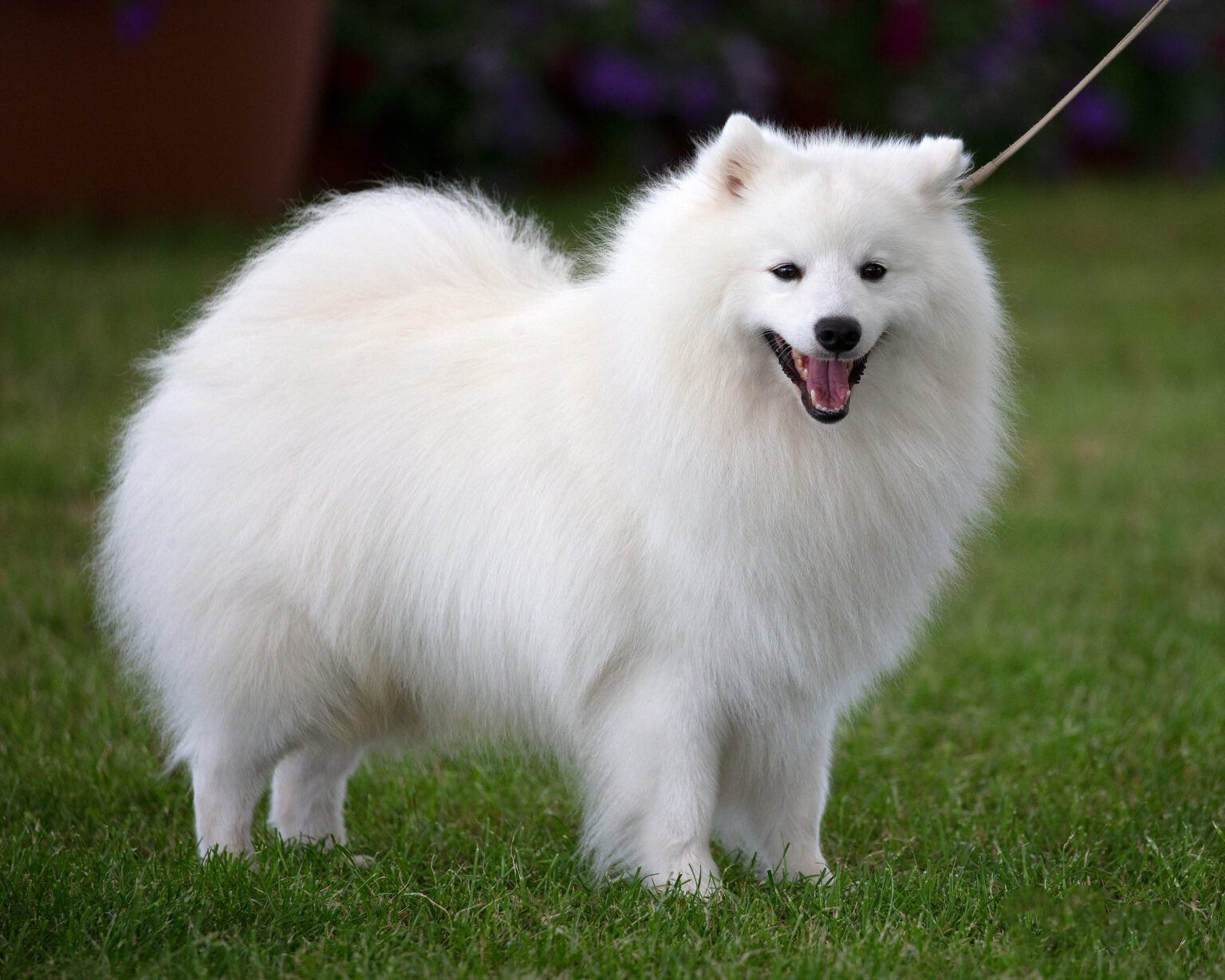Japanese Spitz Dog Breed
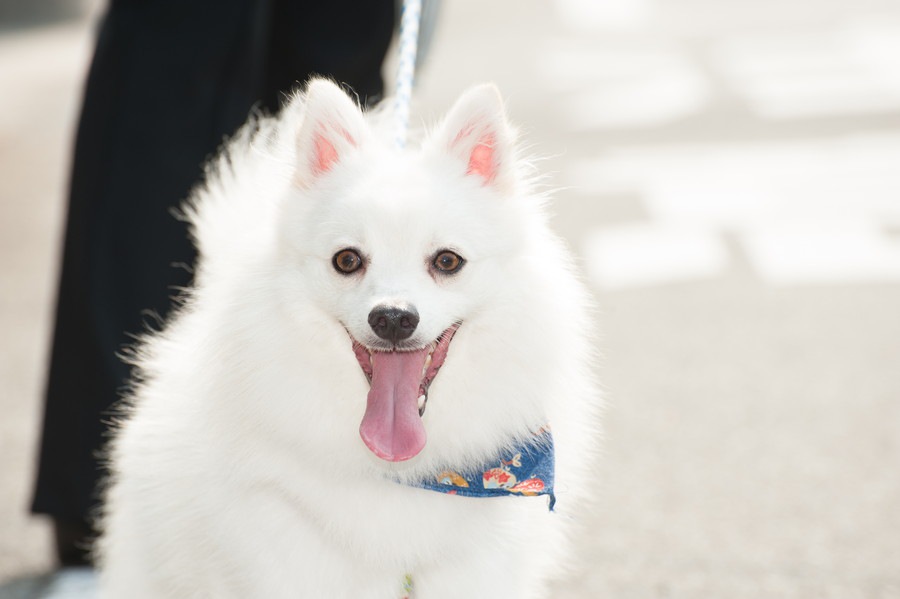
The Japanese Spitz is revered by many enthusiasts as a breed that embodies Japan’s traditional sense of beauty and the spirit of harmony.
Its pristine white fluffy coat evokes images of Japan’s snowy winter landscapes.
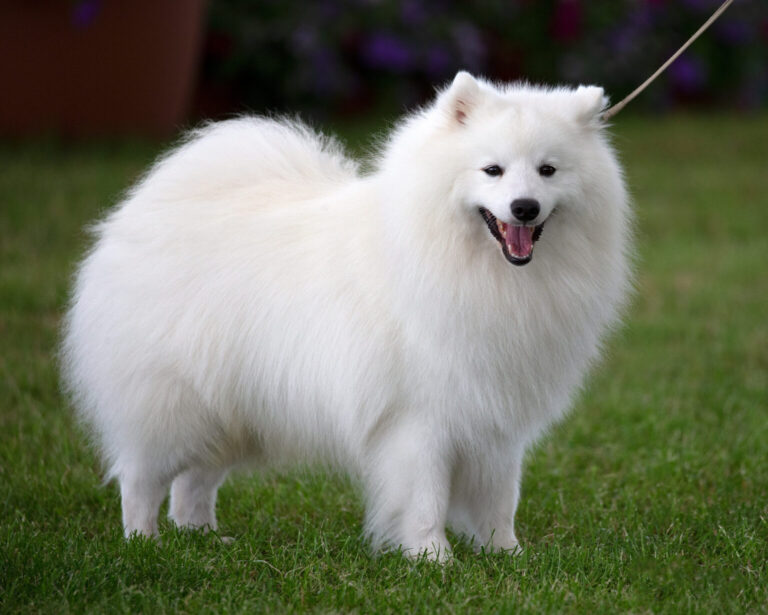
The dual-layer coat, with its tougher exterior and softer undercoat, protects them from the cold.
Their intelligent-looking faces, reminiscent of the legendary foxes from Japanese folklore, along with almond-shaped eyes, resonate with classical Japanese beauty.

Overflowing with this unique Japanese charm, the Japanese Spitz, with its distinct elegance and posture, boasts immense popularity among dog lovers.
Coat Color
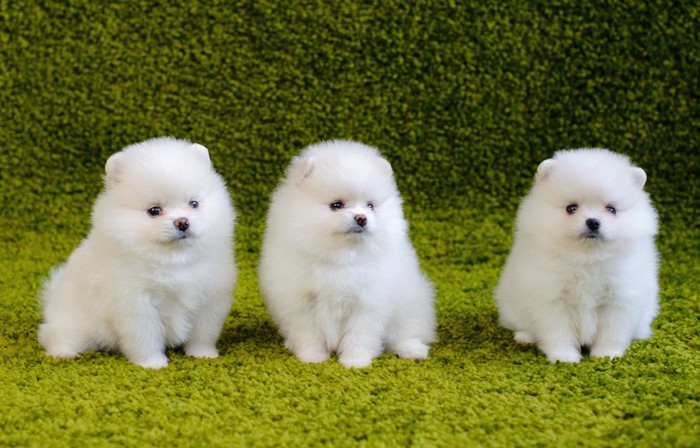
The pristine white fur of the Japanese Spitz is emblematic, symbolizing purity and cleanliness deeply rooted in Japanese culture.

The lustrous and sleek texture of their coat mirrors the aesthetic values cherished by the Japanese, earning admiration from many enthusiasts.
Coat Type
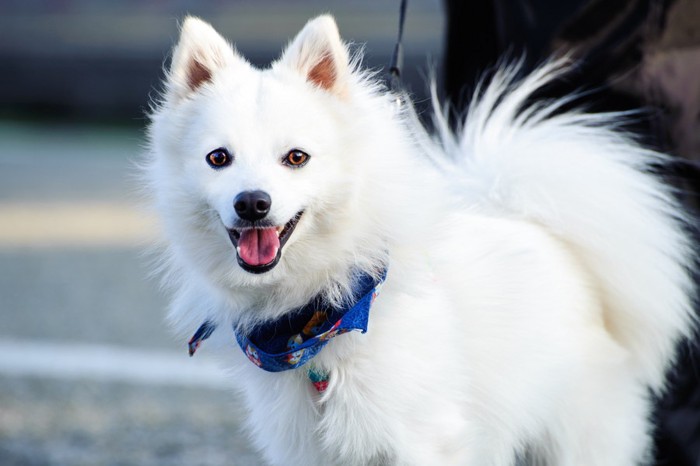
The fur of the Japanese Spitz boasts a dual-layered structure, reflecting Japan’s distinct seasons.
The outer long hair is sturdy, tailored to withstand Japan’s humidity and rain, effectively repelling water and dirt.

On the other hand, the inner undercoat offers a softness and density designed to brave Japan’s chilly winters, ensuring warmth and protection.
Size
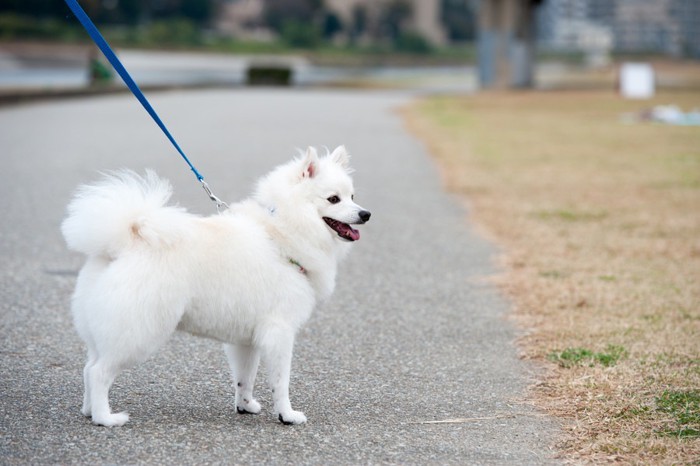
The Japanese Spitz, with its exquisite physique, is often described in traditional Japanese aesthetics as “well-balanced.”
For adult dogs, the height, which refers to the shoulder level, generally varies from about 11.8 inches to 15 inches for males and roughly 9.8 inches to 13.8 inches for females.

It’s important to note that these figures are averages, and sizes can vary from one dog to another.
Japanese culture places a significant emphasis on balance and harmony within nature.
As a result, the harmoniously structured bones, muscles, the characteristic neck, chest, straight back, and sturdy waist of the Japanese Spitz are deeply cherished by many.
Weight
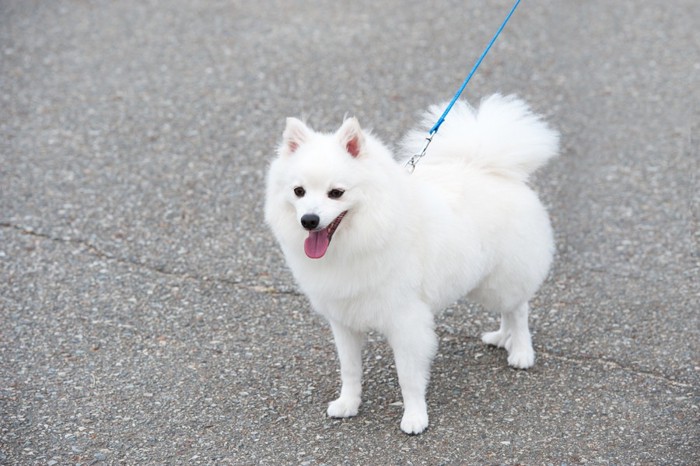
In Japan, the typical weight of a Japanese Spitz is understood by pet owners to be around 22 pounds to 26.5 pounds for males and roughly 17.6 pounds to 22 pounds for females. While these figures serve as a general reference, it’s evident that individual variations will exist. Several factors, including health, physique, genetics, exercise habits, and diet quality, play a role in determining a dog’s weight.

In Japanese culture, meticulous attention to detail is highly valued. Thus, to maintain a healthy weight, consistent monitoring and daily observations are essential. Notably, observing the distinct waistline from the side and the appropriate curvature when viewed from above are considered symbols of the Japanese Spitz’s elegance.
Lifespan
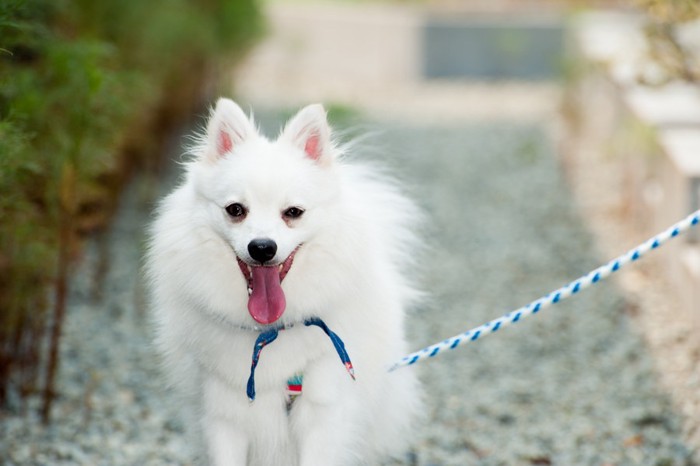
The average lifespan of a Japanese Spitz is said to be between 10 and 16 years.
Within the Japanese household culture, these dogs are often treated as cherished family members, living primarily indoors.

By providing them with appropriate exercise, nurturing care, and the wholesome nutrition rooted in Japanese traditions, it’s not uncommon for them to surpass their average lifespan.
In fact, considering that the typical lifespan for purebred medium-sized dogs is 11 to 13 years, the Japanese Spitz clearly embodies the longevity characteristic of Japanese breeds.
Trainavility
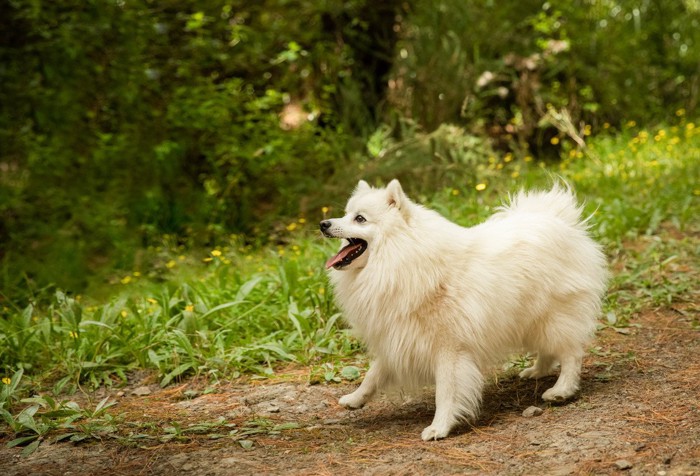
The Japanese Spitz, embodying Japan’s traditional values and culture, is inherently obedient. When trained properly, they quickly grasp basic commands. Given their intelligent yet mischievous nature, it’s crucial for the owner to exhibit leadership, mirroring the significant roles in Japanese familial values. Consistent and ongoing training forms the bedrock of a harmonious pet-owner relationship.

In a manner reminiscent of Japan’s “Omotenashi” hospitality spirit, the Japanese Spitz showers abundant affection on its family. While they may initially be wary of strangers or other animals, with the right socialization and early environmental adaptation training, they can quickly warm up to other pets and people.

All in all, the Japanese Spitz is quick to respond to an owner’s love and directives. With an approach filled with Japanese-style affection and proper guidance, they can indeed be described as a very manageable and amicable breed.
Exercise
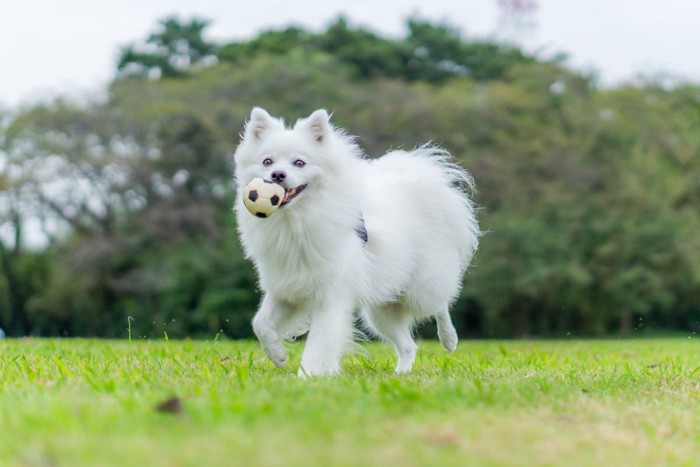
The Japanese Spitz embodies the traditional vitality and energy seen in Japanese culture.
To channel this vigor, daily walks and activities, like ball games and frisbee, tailored to Japan’s park culture, are essential.
This spirited breed maintains its health through play, deepening the bond with its owner reminiscent of Japanese familial ties.
With a sociable nature, the Japanese Spitz builds friendships and releases energy through interactions at local dog communities and dog parks.

Beyond physical activity, toys that mirror traditional Japanese
Feeding
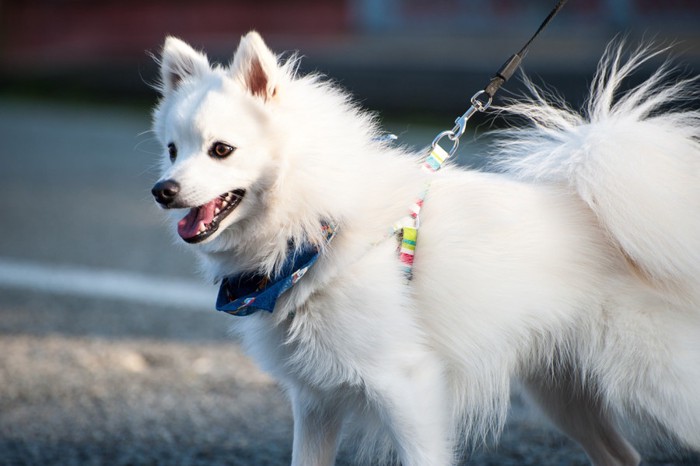
The Japanese Spitz has a distinct characteristic of having fewer sebaceous glands.
With this in mind, Japanese dog owners, cherishing their pet’s health, meticulously check the ingredient list on dog food.

Selecting a low-fat diet can help prevent issues like tear stains and ear wax buildup.
Reflecting Japanese pet care culture, it’s also typical to monitor the type and amount of treats, particularly high-fat ones like jerkies.
Temperament
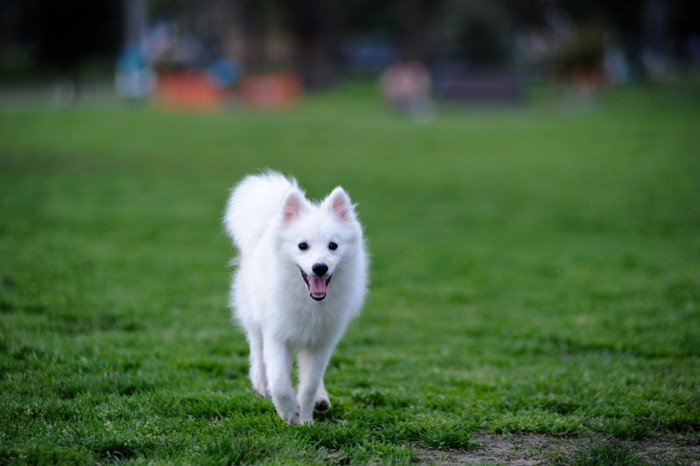
The Japanese Spitz is celebrated as a breed deeply intertwined with Japanese traditions and culture. This heritage imparts a loyalty, symbolic of Japanese dogs, which translates to their profound obedience towards their owners. Reflecting the valued Japanese virtue of “attentive listening,” these dogs keenly tune into their owners’ words, earnestly seeking understanding.
Being perfectly suited for Japanese familial settings that prioritize close-knit family bonds, the Japanese Spitz typically reserves its affection, showing limited interest in outsiders or other dogs. This means spontaneous displays of affection to strangers are rare. However, if exposed to social interactions with other dogs from a young age, their innate playful side blossoms.

With Japanese culture emphasizing meticulous care and sensitivity, it’s no wonder the Japanese Spitz is alert and sensitive to sounds. This same refined perceptiveness brings forth their expressive faces, radiating a pure, uninhibited joy that captures the essence of their character.
History

The origin of the Japanese Spitz traces back to the early Showa period when traditional Japanese dog enthusiasts began importing white dogs from abroad. Although various theories surround this history, it’s undeniable that through crossbreeding with breeds like the German Spitz and American Eskimo, they cultivated a uniquely Japanese breed.
In post-war Japan, flourishing once more, the prevailing mindset was to see dogs primarily as guards. Yet, the Japanese Spitz defied this convention, emerging as a symbol of prosperity. However, with this newfound popularity came indiscriminate breeding, which regrettably led to a decline in their quality. Stemming from Japan’s traditional belief of keeping dogs outdoors, such practices inadvertently affected the temperament of these dogs.

Nevertheless, thanks to the tenacity and deep affection reminiscent of Japanese spirit, enthusiasts of the Japanese Spitz persevered. Their relentless efforts to improve and preserve the breed gave birth to the gentle Japanese Spitz we know today. Their accomplishments are evident as the Japanese Spitz now enjoys global admiration and love.
Grooming

The Japanese Spitz is a breed highly regarded by Japanese owners for its minimal body odor.
For daily care, regular brushing is the main focus, which alone suffices for proper grooming.
Considering Japan’s climate and living conditions, frequent shampooing can risk skin dryness, so a brushing-centric care is recommended.
Moreover, with Japan’s distinct seasonal changes, diligent brushing becomes crucial during shedding seasons.

Using pin brushes and combs during these periods will ensure the maintenance of a lustrous coat.
Health

The Japanese Spitz is known for its delicate skin, making it prone to skin issues. Influenced by Japan’s distinct seasonal changes and a variety of food ingredients, allergies can arise.
In addressing these concerns, embracing Japan’s traditional spirit of meticulous care is crucial. Regular skin check-ups and the use of gentle shampoos containing natural ingredients are recommended.

Additionally, considering the active nature of the Japanese Spitz, as they age, it’s wise to consider a balanced Japanese diet and supplements for joint support to prevent potential issues.
A shared sentiment among Japanese pet owners is the importance of consistent care for their beloved dogs and the philosophy of early detection and prompt action.

